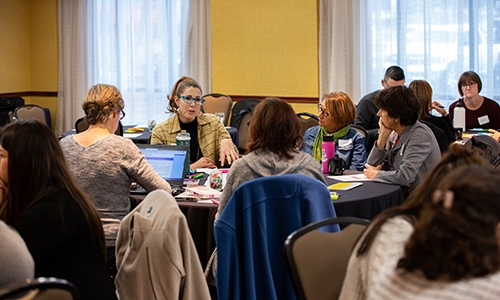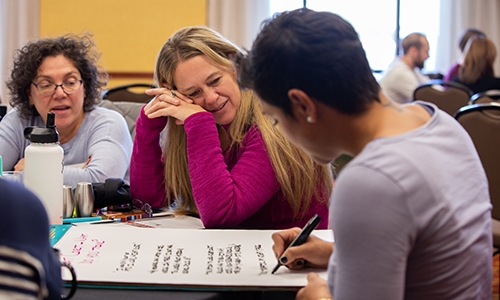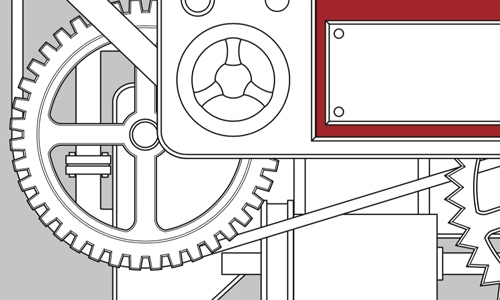
Guest Blog
January 25, 2019
Laura Storovich, a participant in our Colorado design sprint, shares her experience going through divorce as a self-represented litigant and her thoughts on our design sprint process.

Expert Opinion
-
Logan Cornett
-
James Swearingen
January 24, 2019
In the past several years, design thinking has gained traction in the legal field as a method for involving litigants and other stakeholders in developing improvements to the legal system. IAALS has taken design thinking one step further in applying a structured qualitative research approach to the process.
January 23, 2019
Through its Court Compass Design Sprint Workshops, IAALS invited self-represented litigants to work alongside local judges, attorneys, and court administrators to improve the family law court process and access to justice. Litigants in Massachusetts, Iowa, North Carolina, and Colorado answered the call.

Expert Opinion
-
Michael Houlberg
-
Zachariah DeMeola
January 22, 2019
Our courts face a crisis of access. In a majority of family cases—divorce, separation, and custody issues—at least one party is self-represented. With upwards of 80 to 90 percent of cases involving a self-represented party, it is essential that self-represented litigants can navigate the process and know what to expect at key stages. Partnering with experts around the country, IAALS developed Court Compass as a way to engage court users in brainstorming ways to simplify the family court process.
January 18, 2019
According to IAALS’ Foundations for Practice project, legal employers and current practitioners believe that, to be successful, new attorneys right out of law school must do much more than simply refine their legal skills—they must also possess the professional competencies and characteristics that will allow them to be thrive in today’s demanding market. Today, the question remains: How can law schools adapt to meet the needs of the modern legal profession?

New Report
January 17, 2019
Judges and attorneys from across the country point to dispositive motions as a critical area for reform. Today, IAALS announces the release of a new report, Efficiency in Motion: Recommendations for Improving Dispositive Motions Practice in State and Federal Courts, calling for a new paradigm for motion practice in the United States. The report is the culmination of nearly three years of research, surveys, and expert input into the opportunities for improvement and innovation.
January 8, 2019
The percentage of self-represented litigants in many state family courts is substantial. According to a new post by the National Self-Represented Litigants Project (NSRLP), these self-represented parties often feel like outsiders in a court system that appears to them as a private club.
January 7, 2019
For the fifth year in a row, the National Center for State Courts has conducted a comprehensive public opinion survey to gauge the level of public trust and confidence in the state courts. The State of the State Courts survey provides an important window into public views of our court system, including comparisons across past surveys and insights into key issues for the future of our state courts including self-representation and online dispute resolution.

Expert Opinion
January 7, 2019
Employers, particularly those in large firms, have been candid about their hiring preferences, which lean toward academic excellence. The legal profession is rampant with biases in favor of academic excellence. However, as it turns out, the best and the brightest might not be all they’re cracked up to be.
January 2, 2019
Dick Holme has been an invaluable resource at IAALS over the years. With his pioneering insights, steadfast dedication, and hard work, Dick has not only helped shape IAALS, but the legal system as well. We thank him for his continued thought leadership and philanthropic commitment to IAALS.
December 24, 2018
The National Center for State Courts recently released an “explainer video” for courts to use as a resource when educating the public about the role of our state courts. The video looks back at the establishment of the judicial branch and the vision of our founders—of a court system that makes decisions based on law not public opinion, that is fair and impartial, that is accountable to the law and the Constitution, and open to people.
December 4, 2018
Over the past two years, IAALS has been collaborating with the National Center for State Courts (NCSC) on a three-year project to support the modernization and transformation of civil litigation in our state courts. In October we hosted our final meeting for the Midwest Region in Kansas City, Missouri, where over 40 states and territories attended.
